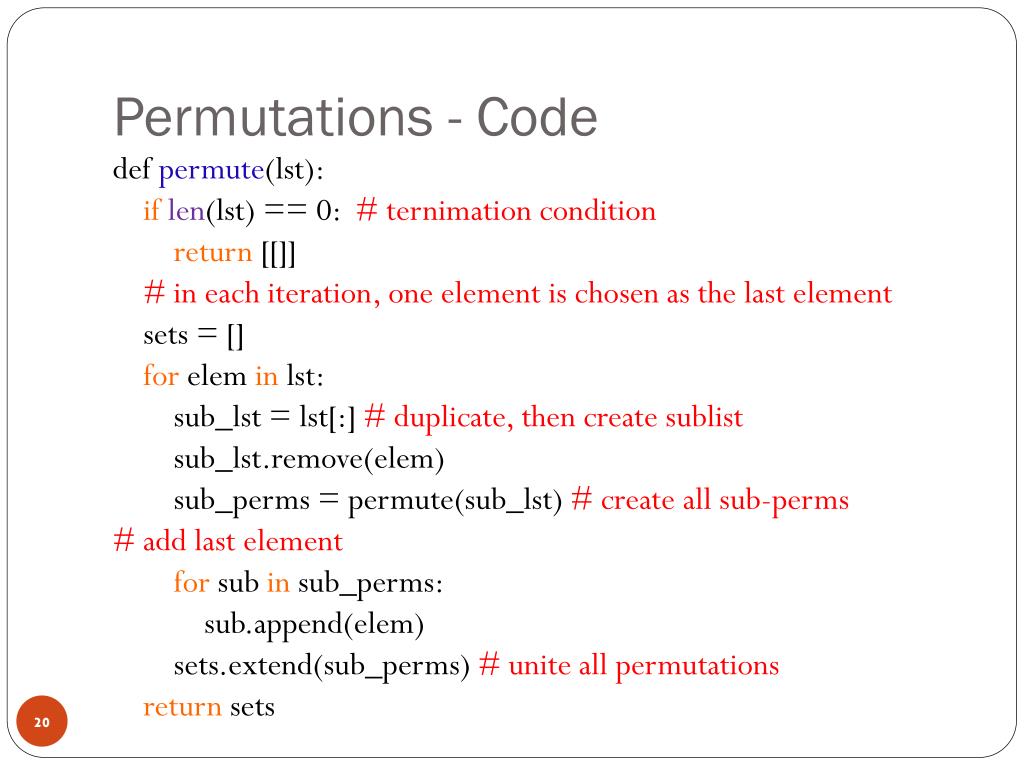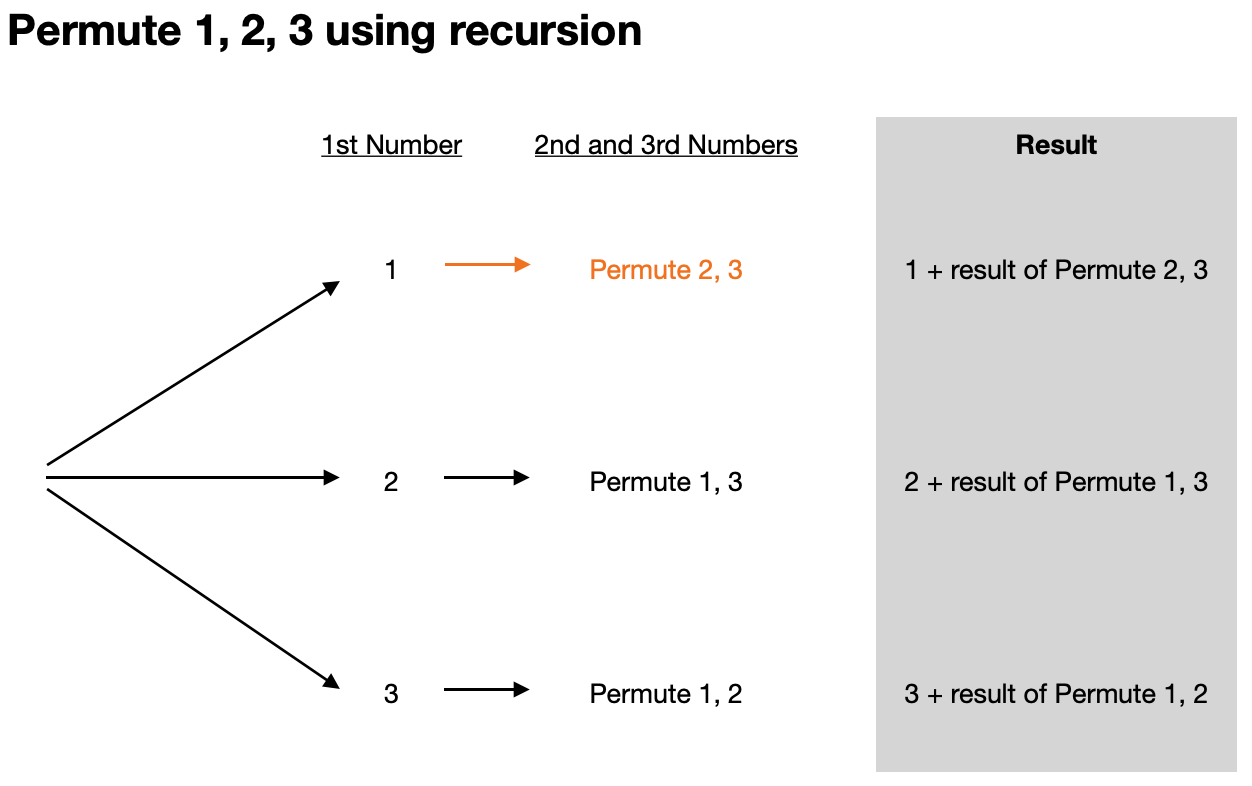

We loaded our string and assigned it to the variable a_string.Let’s take a look at what we’ve done here: String_permutations = list(string_permutations) String_permutations = itertools.permutations(a_string) Let’s take a look at our example string and how we can use the itertools library to calculate its permutations: import itertools We we pass in an iterable, in this case, a string, the function returns a list of all possible combinations. In fact, the itertools library has a function called permutations. Believe it or not, strings in Python are iterable objects! Because of this, we can easily iterate over our strings using the itertools library.

Itertools is a fantastic, built-in Python tool that allows you to make easy work of problems involving iterables. Use Itertools in Python to Find All Permutations of a String Now that you have an understanding of what it means to generate all combinations of a string in Python, let’s see how we can easily generate the different permutations of a string. So, in our example of 'abc', we would calculate the value of 3!, which actually evaluates to 3x2x1 = 6. We can actually calculate the number of permutations a string will have for any length strength, by calculating the factorial of its length. We can see here, that we have a list that contains six items. When we find all the permutations of this string, we return the following list. Let’s, for example, take a look at a string that takes up three letters: 'abc'. Permutations of a string refers to all the different orderings a string may take.

Permutations with Repetition of a String in Python.Use Recursion in Python to Find All Permutations of a String.Use Itertools in Python to Find All Permutations of a String.


 0 kommentar(er)
0 kommentar(er)
